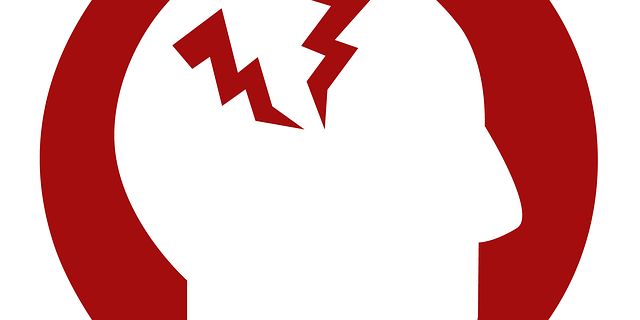Are Tension Headaches Getting You Down?
A little irritation can weigh you down a lot
Tension or Stress Headaches are characterized by dull, tight pain around the forehead, neck, or base of the skull. They do not affect vision or balance, and are not likely to cause nausea, as migraines do. While uncomfortable, they do not generally interfere with one’s daily activities. They can be of short (30 minutes) or long (several days) duration, and some folks may have them nearly every day. Women are twice as likely to have Tension headaches as men, and these headaches can be brought on by both long, grinding stress and sudden shocks.
Stress headaches are very common, and not considered a health risk, but they are certainly unpleasant, and are often accompanied by poor concentration and a sense of fatigue. If you are prone to these headaches, or simply want to reduce the discomfort as much as you can when they do occur, there are plenty of things you can do to feel better. Relaxation techniques, rest, exercise to burn off stress and frustration, and herbal allies can all help keep the symptoms to a minimum.
Tension Headaches are most often caused by the following:
- Physical, Mental, or Emotional Stress (of course!)
- Muscle Tension, especially in the neck and shoulders
- Poor or inadequate sleep (7-9 hours is the average amount of sleep needed by adults)
- A sudden shock (like a near-accident)
- Grief or loss (small or large)
- Anger (like a fight with someone close to you, or getting yelled at by your boss)
- Crying (some folks cry from frustration or stress as well as sadness)
They can be relieved by:
- Stretching
- Meditation/Breathing exercises
- Rest
- Electrolytes, Magnesium supplementation
- Holy Basil (reduces the stress hormone Cortisol)
- Valerian (mild muscle relaxant and sedative)
- Corydalis, Meadowsweet, Willow Bark (painkillers)
- Turmeric or Ginger root (anti-inflammatory)
Valerian and Meadowsweet work very well together for Stress headaches, offering muscle relaxant and pain-relieving effects. Meadowsweet is very easy on the stomach, unlike aspirin and other NSAIDs, and contains salicylic acid to soothe aches and pains. In fact, Meadowsweet is the original source for the development of the brand-name Aspirin! The combination of the two herbs is particularly helpful when neck and shoulder tension is the likely source of the headache. Take a little of each in tea, tablet or tincture, and then sit and do some nice relaxing stretches while you wait for them to take full effect. For those who have trouble sleeping, this is a lovely before-bed ritual.
If you have frequent Tension headaches try taking Ginger or Turmeric root everyday as a gentle anti-inflammatory. This can prevent stress and inflammation from building up in your system. Also, look at your stressors: are you sleeping enough? Communicating well in your primary relationships? Satisfied in your work life? Make sure to get enough rest and downtime, and make room in your schedule for things that bring you joy.
If you are waking up with a stiff neck and headache, think about the way you sleep. Reduce physical and mental clutter in your sleeping area, have a good quality mattress and a bed that invites you to sleep. Try out different pillows, there are lots out there meant to help with neck pain. For herbal allies, Ashwagandha helps promote deeper sleep without being sedative, and Magnesium promotes muscle relaxation. Take both about an hour before going to sleep for best results.
Hormones can definitely be a factor in stress headaches. In fact, a large number of women report headaches as a primary symptom of PMS. To balance hormones and reduce stress, Chaste Tree Berry, also called Vitex, is a good choice. Some women report a difference in their cycles right away but for many it can take up to three months of daily use to feel the full effects. So don’t give up before it has had a chance to work! The berries of this beautiful tree can help with a whole range of hormone related issues, including PMS and Menopause symptoms, fertility issues, painful menstruation, and fibroid growth. It’s a go-to herb for female reproductive health.
For those who can nap, a little extra sleep (2-4 hours) can often relieve a stress headache. If napping leaves you groggy or grumpy, try reading quietly, drawing, or coloring. There are all kinds of new coloring books for adults on the market now, designed especially for stress relief. Avoid television, computers, etc. (including reading on a tablet) as these can be overstimulating and create mental and/or visual fatigue.
Headaches from crying are mainly caused by two things: inflammation in the sinuses, and stress hormones released into the blood. To reduce the stress hormones, take a moderate to large dose of Holy Basil immediately after crying, with a full glass of water. Adding electrolytes to the water is an added benefit. To reduce the inflammation, apply a cool cloth to your eyes and nose while you sit quietly and calm yourself for at least 15 minutes. You’ll be surprised at how much of a difference this can make! According to Ayurveda, resisting the urge to cry can also cause stress headaches, so sometimes it is best to go ahead and let it out.
Tension headaches aren’t fun, but fortunately there’s plenty you can do to both prevent and soothe them yourself. Take care!
Sources:
http://www.webmd.com/migraines-headaches/guide/tension-headaches








